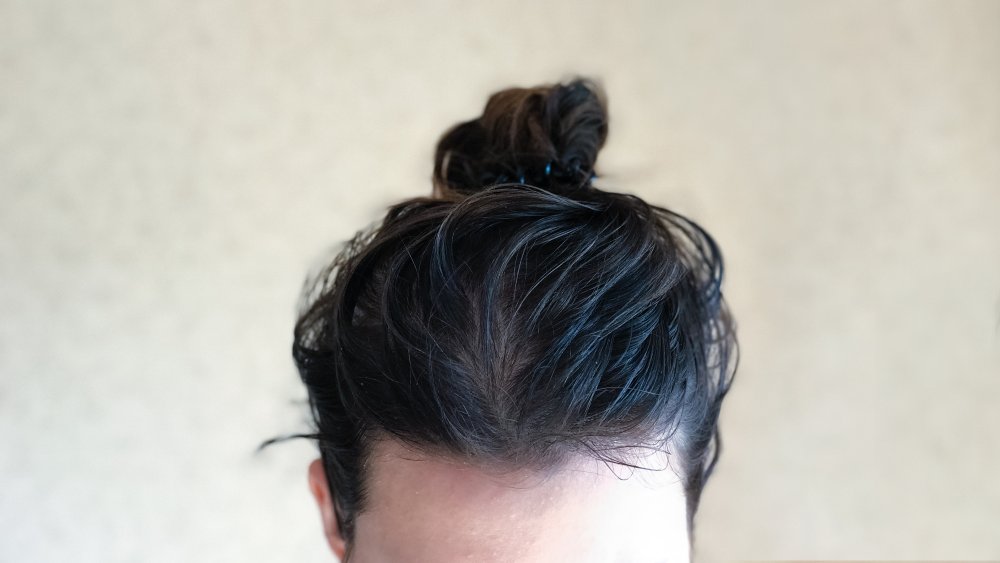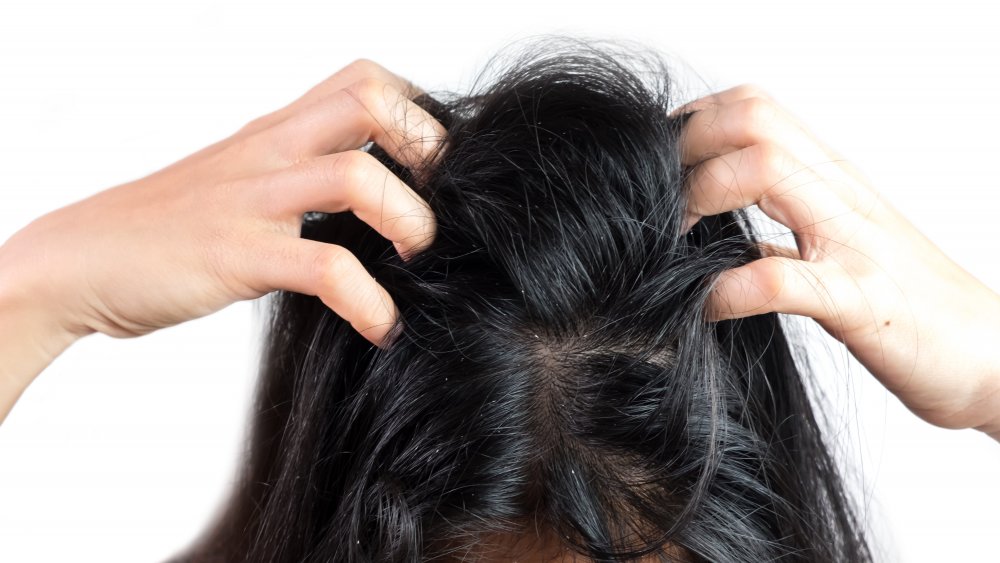The Truth About Quarantine Scalp
Because we've been in quarantine and unable to engage in any form of social activity, we've probably let ourselves go a little (or a lot) by dumping suits for sweats, and heels for bare feet (although that's not exactly recommended), exercising a bit less, and perhaps skipping a proper shampoo and reaching for the dry shampoo bottle instead. And while some of us may be living our best lives under quarantine, others may be feeling the different burdens imposed on us by social distancing. And that's where the problem comes in.
Stress does strange things to our body. When we feel threatened, our nervous system responds by releasing hormones, including adrenaline and cortisol, which prepares us to respond to emergencies (via Help Guide). Unfortunately, cortisol also pushes your body into overdrive, causing your body to create extra sebum, or oil, which then makes its way to your skin or the tops of our heads, and ultimately shows itself as a greasy scalp. Cosmopolitan is now calling this "quarantine scalp."
Stress can trigger greasy hair
But wait, there's more. It's not just the appearance of greasy hair you have to contend with. Cosmopolitan also says that when you have excess oil on your scalp, you could also end up with seborrheic dermatitis, which can mimic the symptoms of dandruff. "Everyone naturally has yeast in our bodies, but when we're in extra dry weather — like stuck at home with the heat on all day—that yeast tends to grow exponentially and can trigger greasy flakes known as seborrheic dermatitis," New York dermatologist Dhaval Bhanusali says.
If you're suffering from quarantine scalp, experts at Allure recommend you give the idea of using dry shampoo every day a pass, because you also run the risk of clogging your hair follicles, which could ultimately hurt your hair. Instead, do a deep-clean by using an anti-dandruff shampoo or reach for a sulfate-free cleanser, which can kill off the extra yeast. But if you don't see any improvement in a few weeks, it could be time to call a dermatologist to explain the problem — a simple shampoo switch or more stress-busting moves like yoga, meditation, and exercise, might go a long way in helping to fix the problem.

